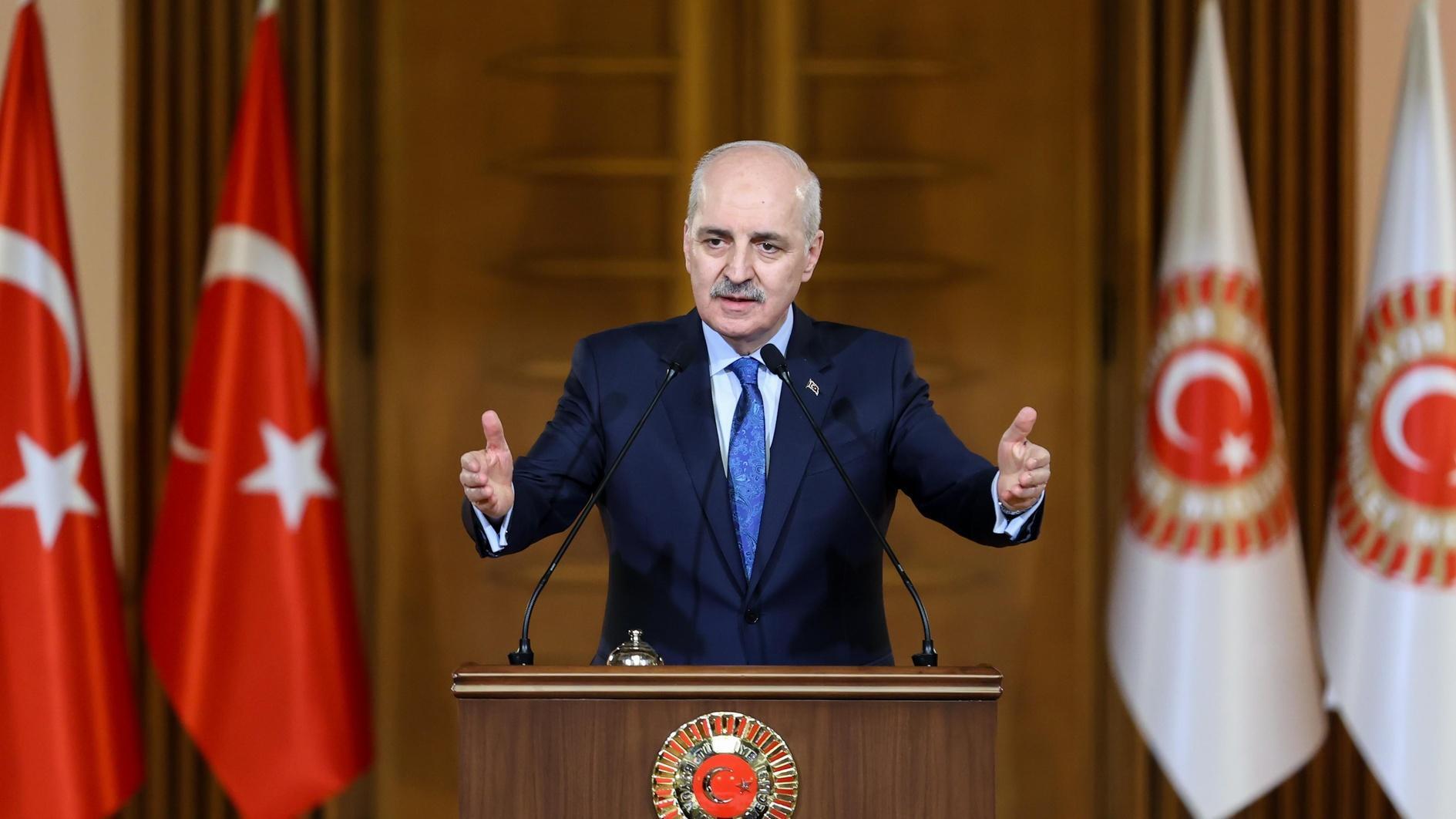
The Turkish parliament will stand as the principal address for deliberations surrounding the process initiated by PKK jailed leader’s call for disarmament Parliament Speaker Numan Kurtulmuş said on March 10.
“The parliament is the institution where all of Türkiye’s challenges are addressed. Consequently, this issue will be resolved through the unified stance of the political parties within parliament,” Kurtulmuş remarked in his address in Ankara.
He further emphasized that, if necessary, he would personally step in to ensure the process is carried out transparently, openly and in good faith, assuring that parliament will uphold its responsibilities in this matter.
His remarks came amid a process that began late last month after the jailed leader of the PKK terrorist organization, Abdullah Öcalan, called on the group to lay down arms. Öcalan’s call was followed by a unilateral ceasefire announced by PKK on March 1.
“I trust that the political landscape will align on a reasonable and pragmatic approach and that all parties will fulfill their duties in bringing this issue to a swift and conclusive resolution,” Kurtulmuş added.
The parliament speaker also firmly rejected claims that Öcalan’s call is connected to the ruling Justice and Development Party’s (AKP) push for constitutional reform, dismissing such assertions as entirely unfounded.
“There is no connection between the İmralı process and the efforts for constitutional amendment efforts. We started working on constitutional reform from day one of the 28th parliamentary term — long before any steps were taken regarding İmralı, almost a year or a year and a half prior.”
“These are distinct issues, and they must not be conflated,” Kurtulmuş asserted.
Last year, Kurtulmuş spearheaded talks on the AKP’s long-standing proposal for a new constitution.
President Recep Tayyip Erdoğan and his AKP have long criticized the existing charter for its origins in the 1980 military coup. However, the call faces hurdles as the ruling bloc lacks the necessary parliamentary majority to advance the proposal.
Addressing the constitutional reform process, Kurtulmuş outlined four pivotal areas of focus. “The first is the expansion and reinterpretation of fundamental rights and freedoms, which I believe must be at the core of the new constitution.”
Second, the judiciary’s structure and functioning require thorough examination and refinement.
Third, the powers, duties and responsibilities of the president, particularly in the context of the presidential system, must be clearly defined.
Lastly, the jurisdiction, responsibilities and functions of the parliament must be explicitly outlined.
“While this is undoubtedly a complex and challenging endeavor, I remain confident that we will achieve meaningful progress,” Kurtulmuş concluded.